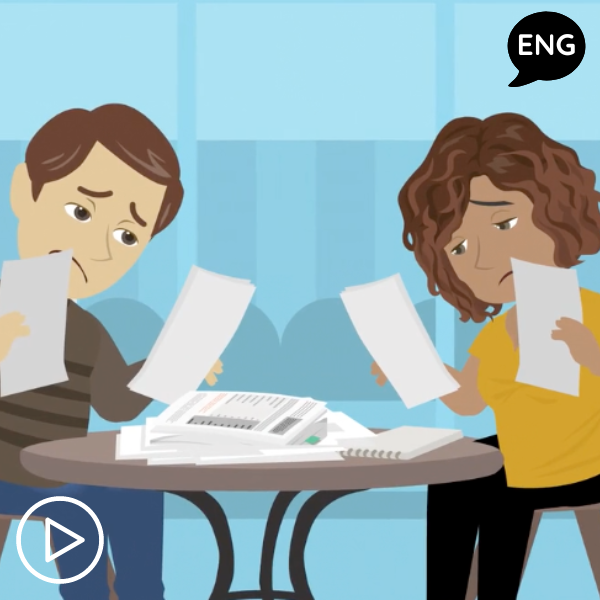Navigating Obstacles to Empowerment That Can Lead to Better Health
Becoming Empowered: Navigating Obstacles to Empowerment That Can Lead to Better Health from Patient Empowerment Network on Vimeo.
Transcript:
Isabella:
Hi, my name is Isabella, and I recently completed my cancer treatment.
And this is Ana, a social worker. Ana helps me navigate my care and provides me with resources when I need them.
Ana:
Thanks, Isabella. And, in my role as an oncology social worker, I focus on helping patients and their loved ones cope with the many facets of life with cancer. Whether it is a question about insurance or mental health needs, my job is to help patients understand the practical and emotional side of cancer care.
Isabella:
And, together, we are going to talk about challenges that may stop people from getting good care, feeling empowered, making decisions with their healthcare team, and what they can do to address these challenges.
Ana:
Let’s start by understanding what the term health equity means. In simple terms, it means that everyone has an equal opportunity to be as healthy as possible. When it comes to cancer, this means getting the best care you need when you need it – from preventing cancer, to follow-up care after treatment.
Unfortunately, circumstances may get in the way of getting the care you need. This might include not having health insurance, not being able to pay your copays, and speaking a different language than your healthcare team. When you’re unable to get the best care possible, this may lead to you not having the quality of life you deserve or living as long as possible.
Isabella:
In my case, it was hard to pay for my cancer treatment. So, I worked with Ana to find resources that helped me pay for the treatment I needed. Instead of basing my decision on what I could afford, I was able to focus on the treatment that would help me have the best outcome.
Ana:
That’s right, Isabella. If you are worried about how you’re going to pay for your treatments, there are several online resources and advocacy groups that can ease the financial burden. The resources can help patients understand their insurance coverage or find payment options if they don’t have insurance. If you don’t know where to start, ask someone on your healthcare team to help you navigate the system.
Isabella:
Good point, Ana. These challenges can also affect your emotional health, so it’s important to recognize this and ask for help.
Another challenge some people face is not having a way to get to their medical appointments, or the cost of getting there and back may be too expensive.
Ana:
This is another time where it’s important let your healthcare team know you might need help. You can talk to your doctor about finding a place to be treated closer to home. Or, reach out to a friend or family member to help with transportation.
There are also several organizations who provide free transportation to and from treatment, such as the American Cancer Society. Either way, it’s essential to let your healthcare team know about your challenges.
Isabella:
If you and your healthcare team don’t speak the same language, you can ask for materials in the language you are most comfortable with and ask for a translator to join you for appointments.
While I understand English, it was empowering to get resources in the language I speak at home. A social worker can help you access these resources.
Ana:
That’s right – you should always feel supported and heard.
Isabella:
Ana, to recap, what can patients do to address their challenges in getting the best care possible?
Ana:
- First and foremost, let your team know if something is getting in the way of you receiving the care you need.
- Next, make use of your whole healthcare team. Each member is there to help you, and you can start by working with a social worker like me to help meet your needs.
- Then, visit advocacy group websites to access support services and resources.
- And, finally, involve a friend or loved one in your care. They can be invaluable support and advocate for you when you need it most.
Isabella:
And don’t forget to review the guide that goes with this video for more resources.
So, what did you learn? Please click this link to access learning questions to test your knowledge.
Ana:
To learn more about shared decision-making and patient empowerment, be sure to watch all the videos in this series.
Thanks for joining us!




